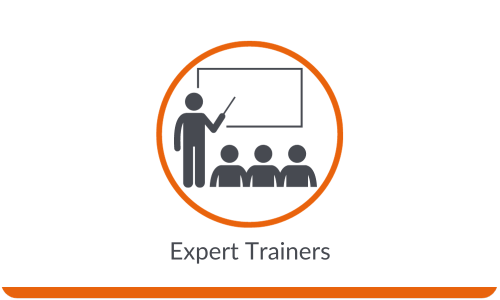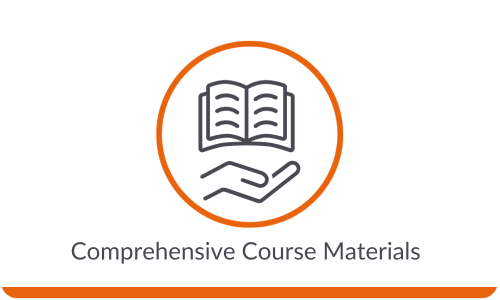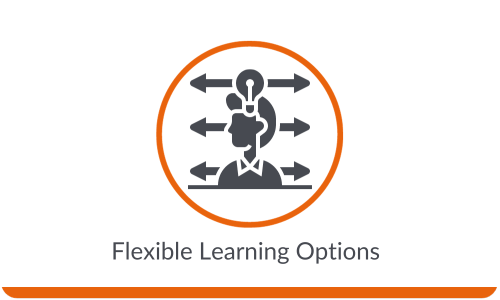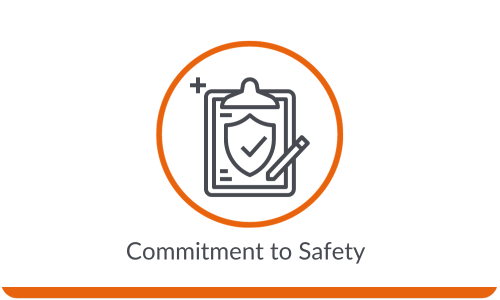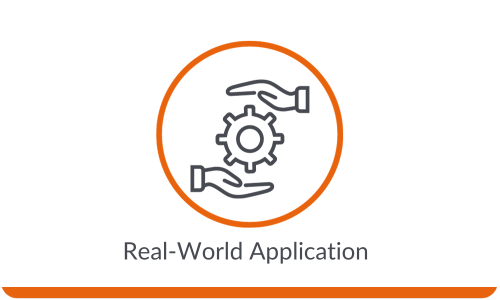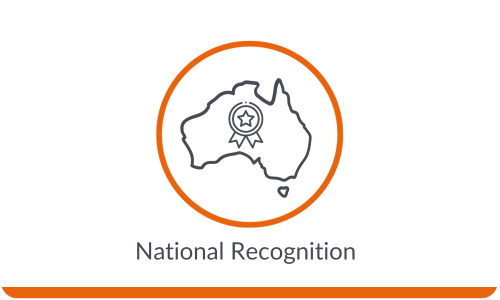Remote Area First Aid Training
REQUEST A GROUP TRAINING QUOTE NOW!
What people are saying
Overview | Remote Area First Aid Training
Our Remote Area First Aid Training programme is a specialised course designed to prepare individuals for emergency situations in isolated and wilderness settings. This training is essential for adventurers, outdoor professionals, and anyone who spends time in remote areas where immediate medical help may not be readily available.
Our comprehensive curriculum covers a wide range of topics tailored to the unique challenges of remote first aid, including advanced wound care, emergency response strategies, and survival skills in adverse conditions. With a focus on practical, hands-on learning, participants will gain the confidence and skills to effectively manage medical emergencies in the wilderness, ensuring they are prepared for any situation they might encounter.
Our Remote Area First Aid Training is taught by experienced instructors with a military and emergency response background, our courses emphasise real-world applications and scenario-based practice. Participants will learn how to make critical decisions and use available resources to provide care in remote settings, from managing snake bites and hypothermia to navigating evacuation and rescue operations.
Choosing our Remote Area First Aid Training not only enhances your teams skill set but also significantly increases their preparedness for outdoor adventures and professional responsibilities in remote locations.
Whether you’re a seasoned explorer, work in remote environmental conservation, or lead outdoor recreational activities, our Remote Area First Aid training provides the essential knowledge and skills to ensure safety and resilience in the face of medical emergencies far from traditional medical facilities.
REMOTE AREA FIRST AID TRAINING TAILORED FOR VARIOUS INDUSTRIES
Remote Area First Aid Training is particularly crucial for industries and professions that operate in isolated, wilderness, or hard-to-access areas where immediate medical help is not readily available. Here are some key industries that should prioritise remote area first aid training for their workforce:
Outdoor Education and Recreation: This includes organisations that offer outdoor educational programmes, adventure tours, and recreational activities such as hiking, camping, and mountain biking. Instructors and guides need to be prepared to manage first aid emergencies in settings far from medical facilities.
Environmental Research and Conservation: Scientists, researchers, and conservationists working in remote field locations, studying wildlife, or engaging in environmental preservation activities require training to handle potential medical emergencies that may occur in these isolated settings.
Oil, Gas, and Mining: Employees working in exploration, extraction, and processing in remote locations need the skills to respond to injuries or health issues that could arise in environments where medical services are not immediately accessible.
Forestry and Logging: Workers in these industries often operate in remote areas with significant risks of injury from machinery, falling trees, and other hazards, making first aid training essential.
Utility and Infrastructure Maintenance: Personnel responsible for the maintenance of remote infrastructure, such as power lines, pipelines, and telecommunications systems, often work in locations far from medical assistance.
Commercial Fishing and Maritime Operations: Crews working on fishing vessels or in maritime industries spend extended periods at sea or in remote coastal areas where access to medical care is limited.
Agriculture and Ranching: Farmers and ranchers working in large, rural properties may face delays in emergency medical response, necessitating skills in remote area first aid.
Disaster Response and Humanitarian Aid: Organisations involved in providing relief and assistance during natural disasters or in conflict zones often operate in areas with compromised infrastructure, where first aid skills are critical.
Government and Military Operations: Military personnel and government workers in field assignments or on missions in remote areas require training to manage medical emergencies independently.
Search and Rescue Organisations: Teams specialising in search and rescue operations in wilderness areas must have advanced first aid knowledge to provide immediate care to injured individuals during missions.
For these industries, remote area first aid training ensures that workers have the knowledge and skills to provide effective care in emergencies, potentially saving lives when professional medical help is delayed. It enhances safety, preparedness, and resilience among teams working in challenging and isolated environments.
PROGRAM DETAILS
Students who are deemed competent will receive a Statement of Attainment, which is recognised under the Australian Qualifications Framework. This training is nationally recognised:
- HLTAID013 Provide first aid in remote or isolated site
- HLTAID011 Provide First Aid
- HLTAID010 Provide Basic Emergency Life Support
- HLTAID009 Provide Cardiopulmonary Resuscitation
Intrinsic Safety Pty Ltd (RTO45803) is responsible under the National Vocational Education and Training Regulator Act 2011 for the quality of the training and assessment being delivered in this course and for the issuance of all AQF certificates.
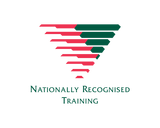
Course Fees
- Group Bookings: Contact us to discuss a customised quote.
Refunds & Fee Protection
- Your Guide to Policies: For detailed information on refunds and fee protection, please consult our Pre-Enrolment Participant Handbook.
Payment Information
- Group Bookings: Custom payment solutions for every team. We’ll work with you to set up terms that align with your needs and ours.
This course can be delivered/assessed in the workplace or at a facility organised by Intrinsic Safety Pty Ltd (RTO 45803).
Course Duration & Modes
- Face to Face Training: 3-day (24-hour) intensive, hands-on session.
- Enhanced Online Training: Self-paced online pre-learning and 8-hour practical assessment session.
- Blended/Refresher Training: Mix of online pre-learning and 2-day (16-hour) practical session, ideal for skill updates.
Each format is tailored to different learning styles and schedules, ensuring effective and efficient Remote Area First Aid Training.
Our detailed course outline ensures a thorough grasp of:
Legal and Ethical Considerations
- First Aid Code of Practice
- Australian Resuscitation Council (ARC)
- Duty of Care
- Good Samaritan Laws
- Consent and Legal Aspects of Consent
- Skill Limitations and Responsibilities
Workplace First Aid Setup and Management
- Workplace Procedures and Policies
- Safe Work Practices
- Training Competency Requirements
- Workplace First Aid Kits and their Contents
- Equipment Required for Injury and Illness Management
- Improvising First Aid Resources
- Remote Area Medical Chest (RAMC)
Remote Area First Aid
- Managing First Aid in Remote Areas
- Remote and Isolated Area Illness/Injury
- Pre-Departure Checks and Elements of a Pre-Departure Check
First Aid Techniques and Protocols
- Recognizing and Responding to First Aid Emergencies
- Major vs. Minor Incidents
- Coordinating First Aid Resources
- Safety Priorities, Scene Hazard Assessment, and Reducing Risk
- Mass Casualty Incidents and Triage Process
- Infection Control and Standard Precautions
Medication and Emergency Services
- Legal Requirements for Administering Medication
- 5R’s of Medication
- Accessing and Communicating with Emergency Services
- Conducting a Handover to Emergency Services
Communication and Reporting
- Remote Area Communications
- Completing a First Aid Report Form
- Confidentiality of Casualty Information
- M.R.M.I.S.T. model
Psychological Considerations
- Psychological Impact on First Aiders
- Critical Incident Debriefing
- Managing Operational Stress
- Mental Health Support Services
First Aid Assessments and Actions
- Primary and Secondary Surveys
- Assessing Level of Consciousness, Breathing, Vital Signs
- Cardiopulmonary Resuscitation (CPR)
- Automated External Defibrillator (AED) Usage
Injury and Illness Management
- Moving and Transporting Injured Persons
- Allergic Reactions, Anaphylaxis, Asthma
- Bleeding Management and Tourniquet Application
- Handling Cardiac Conditions, Choking, Stroke, Diabetes
- Managing Drowning, Bites, Stings, and Burns
- Dealing with Fractures, Dislocations, and Sprains
- Handling Head, Neck, and Spinal Injuries
- Responding to Hypothermia, Hyperthermia, Poisoning, Seizures, Shock
Specific Injuries and Conditions
- Minor Wounds, Nosebleeds, Sharps Injuries
- Thermal, Chemical, and Electrical Burns
- Handling Abdominal Injuries, Childbirth, Ear Injuries
- Addressing Substance Abuse Issues
Assessment Methods
We provide a well-rounded assessment process that encompasses both practical tasks and scenarios, as well as written theory assessments, throughout the training. This comprehensive approach ensures a thorough evaluation of your skills and knowledge, allowing you to demonstrate your competency in real-world application and theoretical understanding.
Specific assessment tasks to be undertaken include:
- Knowledge Assessment
- Perform Adult CPR and AED – Practical
- Manage an Unconscious Breathing Casualty – Practical
- Perform Two-Rescuer CPR – Practical
- Perform Infant CPR – Practical
- Communicate Incident Details – Practical
- Review the Incident – Practical
- Manage an Asthma Patient – Practical
- Manage an Anaphylaxis Patient – Practical
- Manage a Non-Life-Threatening Bleed – Practical
- Manage a Choking Patient – Practical
- Manage a Patient in Shock – Practical
- Manage a Nosebleed – Practical
- Manage a Patient with a Fracture – Practical
- Manage a Snake Bite Patient – Practical
- Manage Sprains and Strains – Practical
- Minor Wound Cleaning – Practical
- Manage Minor Dislocations – Practical
- Manage a Head Injury – Practical
- Manage a Neck Injury – Practical
- Manage a Spinal Injury – Practical
- Manage Hypothermia – Practical
- Manage Hyperthermia – Practical
- Manage a Life-Threatening Bleed (Torniquet and HMD) – Practical
- Manage a Multi-Casualty Triage – Practical
- Respond to a Remote First Aid Incident – Practical
- Conduct Pre-Departure Checks – Practical
Entry Requirements
- Pre-Course Study: Depending on the course mode, online pre-course work may be required before the face-to-face session.
- Online Study Requirements: A computer, smartphone, tablet, or similar device with internet access is needed for online or pre-course studies.
For comprehensive details on your rights and responsibilities, including our complaints and appeals process, kindly refer to the Pre-Enrolment Participant Handbook on our website.
We’re committed to fostering an enriching learning environment. Key to this is understanding your Language, Literacy, Numeracy (LLN), and Digital Literacy skills, essential for your course success.
LLN Evaluation Verification
- Assessing Your Needs: Check if you need an LLN Evaluation based on your prior qualifications through our LLN Evaluation Verification Form.
Digital Literacy Checklist
- Embracing Technology: Complete our Pre-Enrolment Digital Literacy Checklist to help us tailor our support to enhance your digital skills.
Formal LLN Evaluation
- Tailored Support: If required, you can complete our Formal LLN Evaluation online, helping us understand your skill levels for personalised support.
These tools ensure you start your course with all the support you need for a successful learning journey. For any questions or extra assistance, feel free to contact our support team at [email protected].
REQUEST A GROUP TRAINING QUOTE NOW!
Pre-Enrolment Participant Handbook
Intrinsic Safety Pty Ltd (RTO 45803) offers a detailed pre-enrolment participant handbook for those interested in our programs. This handbook helps you understand your rights when you enrol with us.
We advise you to read and understand the handbook thoroughly before enrolling in any nationally accredited training program offered by Intrinsic Safety Pty Ltd. This ensures you are well-informed about the enrolment process and the program details.
If there is anything in the handbook where you require further clarification, please do not hesitate to call Intrinsic Safety on 1300 990 336 and one of our friendly team members will be more than happy to assist you.
LLN and Digital Literacy
You can complete these activities, using the links below now, or once you have enrolled:
- LLN Evaluation: It’s important for us to understand your language, literacy, and numeracy skills to best support your learning. Please complete the LLN Evaluation Verification, accessible HERE.
- Digital Literacy Checklist: To ensure you’re prepared for our digital learning environment, please fill out the Pre-Enrolment Digital Literacy Checklist available HERE.

Now is the time to get qualified.
discover our other training courses
Intrinsic Safety is an established, trusted, quality training provider with an extensive list of corporate clients and individuals who have attended our training courses over the years in a variety of learning areas:
REQUEST A GROUP TRAINING QUOTE NOW!
Ready to start your training with Intrinsic Safety?
Enrol Now
Find and enrol in the course you need to complete today.
Call Us
Speak to one of our Training Specialists Monday – Friday from 7:30am – 5pm (AEST).
Submit an Enquiry
Not in a rush? Simply submit your enquiry and we look forward to speaking with you shortly.
Locate Us
Looking for our location details? We deliver courses throughout Australia.
Why Study with Us?
